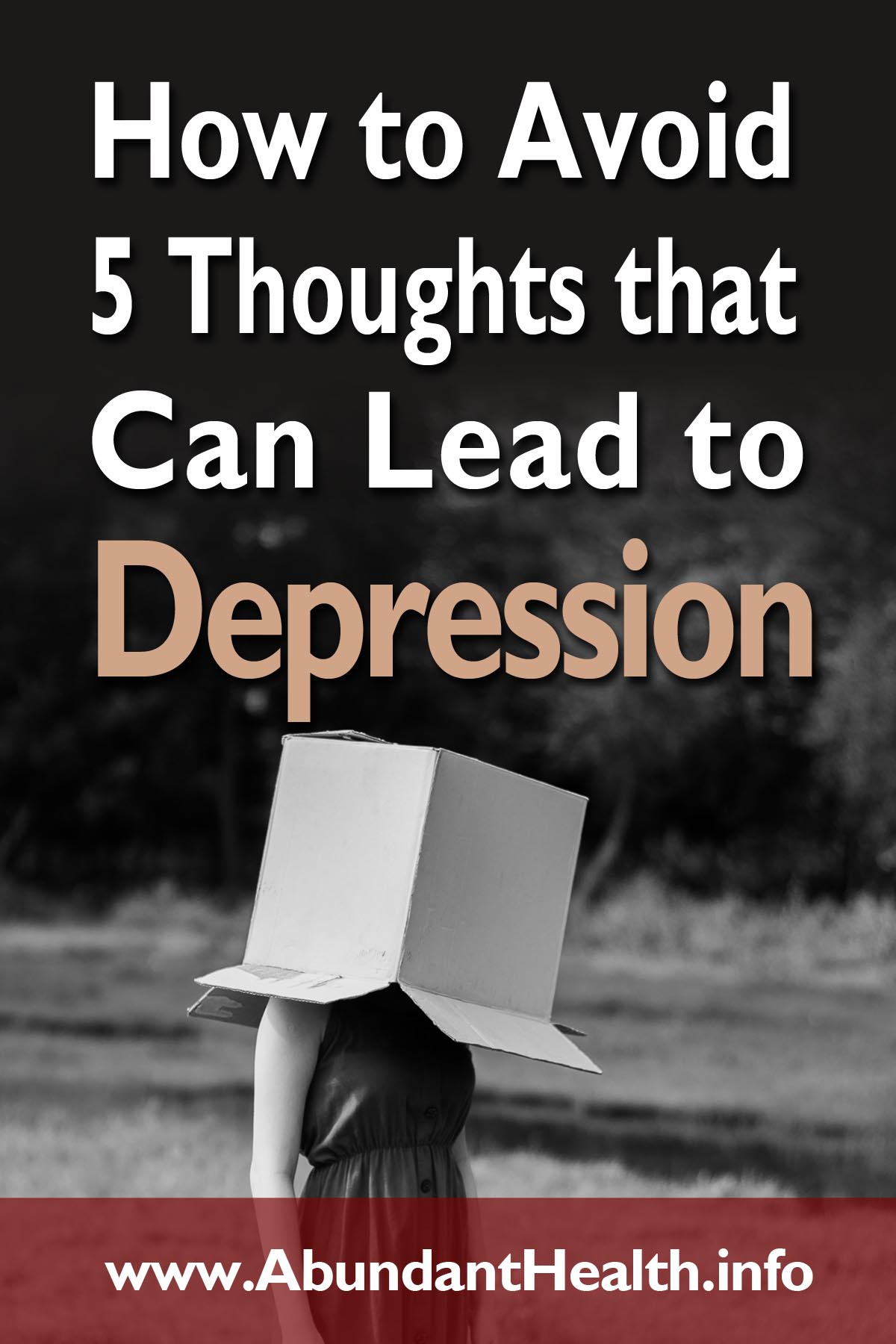Depression is a very common mental illness in today’s reality. An estimated 21 million adults in the U.S. had at least one episode of depression in their lives. That represents 8.4% of all U.S. adults. Among women, that number was rising to 10.5%, and the age range of 18-25 years had a 17% prevalence of depression. We need to know how to deal with this disease more appropriately.

A person experiencing sadness and decreased interest or loss of pleasure in day-to-day activities, which has been going on for at least two weeks straight, also having changes in appetite, sleep disturbances, lack of energy, difficulty making decisions, suicidal thoughts and feelings of guilt, indicates the presence of depression. The most important mental factor for someone depressed being at risk for suicide is hopelessness. That is, the person sees no way out of their suffering, so they start thinking about killing themselves to end the pain.
Before thinking that someone is depressed, if there are physical diseases, such as thyroid problems, chronic infections, tumors, and encephalitis, among others, it is necessary to treat them, because these diseases can produce depressive symptoms. In addition, it is common for people to have comorbidities, where they present more than one disease at the same time.
For example, it seems that about 50% of people diagnosed with depression also suffer from excessive anxiety. Some may have exaggerated anxiety, depression, and alcoholism, for example. A person may begin to become depressed because of already being a socially withdrawn person for years, as well as depression contributes to the individual withdrawing himself from social life.
Other people experiencing pressure at work, going into burnout syndrome, or suffering moral abuse in the company, can also become depressed. When a person has gone through a depression and the depressive state has produced important losses in his life, he may have been left with a negative signal in his mind, and when some triggering factor happens years later, he may go back into depression.
For example, if a person became depressed because he suffered from moral abuse in the company and when he could no longer bear this suffering at work, he ended up quitting, even though it was causing economic turmoil, it is a situation that could trigger a depression. By coming out of the situation that was causing the suffering and receiving effective treatment, he became well. But if after some time he has the feeling that some kind of abuse against him may occur again, the depressive state may begin to return. Therefore, it is important to be aware of the triggering factors that can trigger painful thoughts and feelings in the person’s mind.

There are different types of depressive states, such as clinical depression, in contrast to dysthymia, which is a type of chronic depression, only milder. There is also bipolar affective disorder, in which the person, in addition to euphoric episodes, suffers from depressive periods. Another type of depression is seasonal, which occurs more in regions of long winter, with a long time without sunlight. Still another is postpartum depression which happens shortly after the baby is born. Some suffer from psychotic depression, which includes delusions, hallucinations, and important changes in the perception of reality.
One of the psychological factors that favors the onset of depression is the tendency to cultivate thoughts of complaint, pessimism, defeat, personal contempt, and hopelessness. Some are hard on themselves, blame themselves too much for failures that have occurred in life, and also attack themselves when they perceive flaws or mistakes in their behavior. In these cases, these individuals need to cultivate self-compassion instead of self-deprecation and learn to forgive themselves instead of blaming themselves all the time.
One factor that produces depression is the very sociable person, but who places too much emphasis on their self-worth in relationships. Thus, when problems arise, such as a financial loss or a divorce, he may fall into depression precisely because he had based his self-worth on something outside himself, on another person, or on some external acquisition. In these cases, the individual can be helped not to fall into depression, correcting this attitude in life of centering their self-respect and self-worth on objects, acquisitions, and external relationships.
It is well known that traumatic experiences throughout childhood greatly increase the risk of depression later in life. This includes the child being a victim of abuse, having suffered illnesses that required hospitalization, divorce from the parents, and death of one of the parents, especially the one with whom the child had more attachment, all happening until the third year of life. In addition, children of depressed mothers have a higher risk of depression in adulthood.

In therapy, it is common for a person to say that he started to have depression since, for example, he discovered that his son was using illicit drugs. But the truth is that this fact may be one of many problems that the person has been experiencing over the years and would then be the triggering factor of depression, but not the only cause of it. It may have been the last straw for him to become depressed.
He may have suffered from the death of loved ones in recent years before the depression hit, he may have been fired, he may live in a place of violence, he may have marital difficulties and all this may have accumulated and ended up bursting into depression.
Factors that can prevent going into depression are having good social support, having friends and relatives who give a helping hand, a healthy lifestyle with regular exercise, a healthy diet, the elimination of toxic substances from the brain, adequate water intake, sun exposure, the practice of faith and a purpose for life.
For the treatment of depression, it is important to understand that lifestyle change needs to be made, rather than just using medications. This includes personal work on the thought patterns the person nurtures most, battling tragic, dysfunctional and hopeless thoughts, and cultivating a mindset of gratitude, hope and meaning in life.
Some want to know which antidepressant works best. There is not one remedy that works best for everyone who suffers from depression. The same drugs produce different results for different people. Many depressed may improve with any antidepressant, while others do not improve long-term with any of them.
Some studies show that depressed people who have undergone psychotherapy with cognitive behavioral therapy may be less likely to have depression again than those who have only used antidepressants without psychotherapy. A challenge for us psychiatrists when treating a patient with depression who has, for example, a lot of insomnia and anxiety, is that by prescribing a tranquilizer, as it is a central nervous system depressant, the depressed person may sleep better and have their anxiety decreased, but may become more lethargic or sluggish.
Finally, if a person with depression says that they prefer psychotherapeutic treatment without medication, it is important to respect this and see how they will evolve when undergoing psychotherapy only.

If you have always cultivated thoughts and negative beliefs about yourself, about your life, about trusting others, predominating in your mind the lack of hope and solutions, you are more likely to have a depressive state than the individual who is optimistic, who cultivates healthy thoughts, trust and hope.
Individuals who are emotionally dependent find themselves inadequate in almost everything, and so they feel they need to have someone to cling to in order to live. These people have a higher risk of developing depression. And when the person to whom you attach yourself in an exaggerated way, fails, leaves, cheats, or dies, this can be enough to trigger depression.
With this, we learn that, from an early age, the child needs to be taught to have some independence, rather than being raised too attached to the father, mother, or other caregiver. We need to release our children to life, otherwise they won’t believe they can face reality by themselves. So, whenever possible, encourage your children to do things that feed them the thought that they are smart, capable, and autonomous.
Of course, we educate children well, helping them not to go into depression later in life when we combine tasks for them, which they can solve on their own with other tasks that require the help of others to complete. And when it comes to activities in which it is normal to ask others for help, we pass them the idea that it is all right to ask for help and praise them for those they have done alone.
A good number of people develop depression because having failed to obtain love and acceptance from important people in their lives, they come to feel that they are full of flaws and unworthy of receiving love. This can become a pattern of thinking, which maintains the depressive state.
Some become very hung up on attention. This can be a trap that favors the depressive state because not everyone can pay attention all the time, and not receiving this, they depreciate themselves and become depressed, instead of looking at reality and thinking that the people around them are not responsible for what they lacked in childhood, and even the present people in their life cannot offer everything all the time, what they want in terms of affection.
In these cases, this person who consciously or unconsciously nurtures the idea that he needs attention from others all the time so as not to fall into depression, if he wants to get improve, he will need to change this psychological belief, understanding that he must be liked by some, but that it is not possible to receive from them a perfect love.
You need to lower your expectations of receiving attention, affection, and care from others. When the depressed person begins to think that in his mind there are negative beliefs such as wanting the attention of others all the time to feel good, it is his responsibility to fight against it instead of not wanting to think about these things, and thinking that the remedy, the medication will fix everything.
The depressed can learn to have new and better thoughts without having to stick with the old ways of thinking that push them into depression. Managing to change negative psychological core beliefs can be difficult without professional help, but it’s not impossible.

If psychological treatment is needed, it will be useful in helping the depressed person to perceive his pessimistic or faulty way of thinking, encouraging him to resist it, and cultivating thoughts of gratitude, realistic optimism, compassion and forgiveness. This is important in the treatment of depression because the way a person interprets what happens to him is more important than what actually happens. When events are interpreted negatively, pessimistically with hopelessness, this produces anxious and depressive feelings and makes everything worse.
Of course, when there is a real painful loss, it is normal for negative thoughts of sadness, anger, and pain to arise, but this is different from keeping distorted thoughts in the mind by assessing reality in an unhealthy way. If you are a family member of the depressed and need to deal with that individual’s depression, it is important to understand that even if they say things that seem like they are strong to overcome the depressive state, talking is different from having the strength to do so. Some depressed people push themselves to please others by saying things that give the idea that they will know how to get out of depression, but that’s not always the truth.
In these cases, the family member, and of course, the professional who attends to the depressed, can teach some social or personal skills for the depressed to improve, and not only listen to what he says. Some depressed people are even experiencing very difficult situations, which do not seem to have a short-term solution. In these cases, there is no distortion of reality, but a real difficulty that can lead to hopelessness.
Then the person himself or someone else can help by remembering situations from their past, which seemed insoluble, but that solutions emerged, or remembering that those that did not have a good solution were faced and the person survived. Depressed people usually focus their attention on their feelings, which can be sadness, anger, fear, guilt, or shame. But it is important to force the mind to think about the kind of thinking that is causing the feeling.

Understanding thought is fundamental to the solution of what one feels because it all begins in the thoughts. What we think produces what we feel, and feelings lead to actions. If the thought has been distorted, then it needs to be corrected because it influences the feeling that the person will experience.
Taking medicine to improve the painful feeling without changing negative and tragic pessimistic thinking does not solve the underlying problem. Distortions of thoughts are based on exaggerated or unrealistic ways of reasoning. People can’t always find the thought that is behind what they feel, it’s true.
In these cases, he needs to better analyze what is going on in his mind to find the thought that produced that emotion, because it is there in the mind. Too bad a good part doesn’t want to think. You can reason like this: But what thought can be behind this feeling? Or you can think: Did something happen to me today that made me think something bad, and with that, I was left feeling bad? Could it be that I’ve been cultivating a way of thinking that is always negative and makes me depressed?
A problem that can harm the person and cause him not to improve from depression is that he may have become so accustomed to thinking in a bad, negative and pessimistic way, that on one hand, he says he wants to get better, but on the other hand, he feels it is difficult to change his way of thinking.
Incredible as it may seem, we can get used to suffering, and find it difficult to take action to get out of it. This happens even with people undergoing psychiatric and psychological treatment, which is when they sabotage the improvement they could have. Several times I gave the person tasks to do at home, and I put in writing what was to be done until the next appointment. In the next consultation, when I asked about what he had managed to do with that list I had given, some patients said that they had lost the list or forgotten about the tasks. Improving depression and other mental illnesses does not depend on the professional alone. The person needs to be committed to the treatment. And changing thoughts is often already half the way to healing.

Stay Always Up to Date
Sign up to our newsletter and stay always informed with news and tips around your health.

Dr. Cesar Vasconcellos de Souza is working as a psychiatrist and international speaker. He is author of 3 books, columnist of the health magazine “Vida e Saúde” for 25 years, and has a regular program on the “Novo Tempo” TV channel.
Leave a Reply